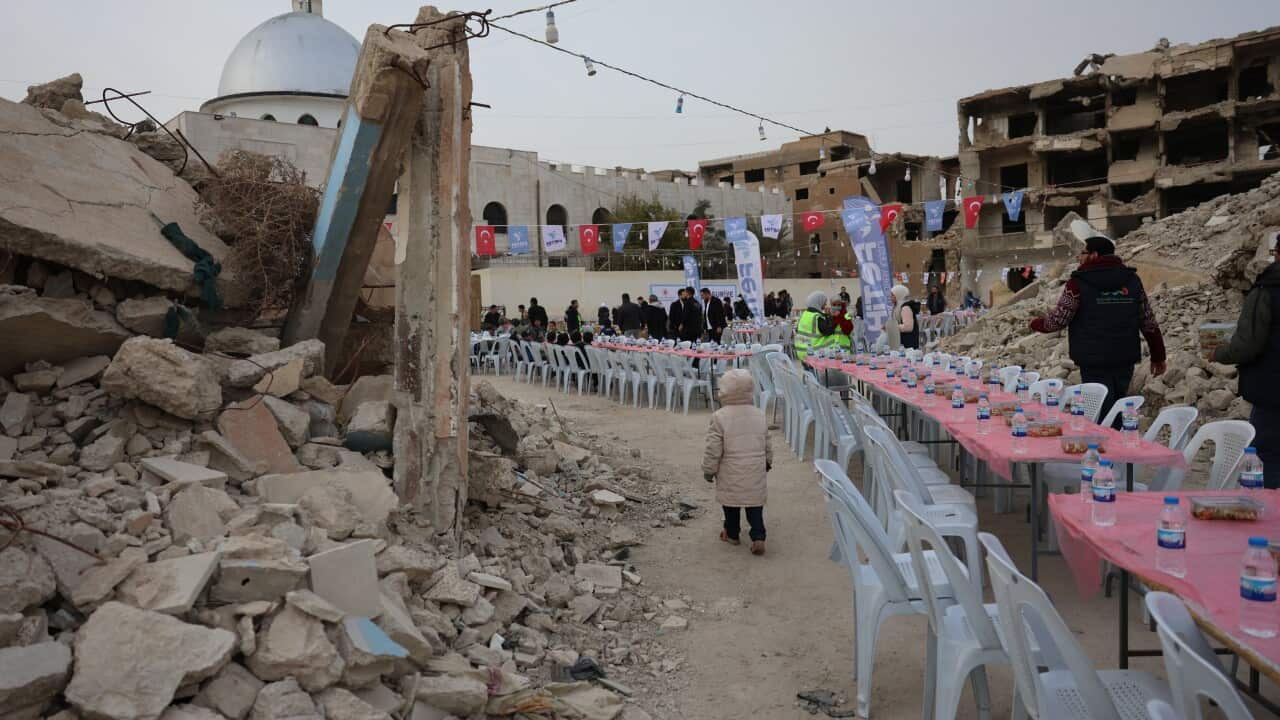Mr Kaldas believes that like other areas of Australian society, racism is evident within the police force, and whoever says otherwise is “turning a blind eye”.
The comments come amid widespread scrutiny in the US and internationally over the perceived link between excessive police tactics and racism, following the death of African American man George Floyd in Minneapolis.
Charges have been laid against involved in Floyd's death. In Australia, a spotlight has been focused on NSW police following the arrest of a 17-year-old Aboriginal boy by a police constable on Monday, which was captured on video.
In Australia, a spotlight has been focused on NSW police following the arrest of a 17-year-old Aboriginal boy by a police constable on Monday, which was captured on video.

Peaceful protests in George Floyd's hometown of Houston. Source: AP
The youth was hospitalised after being , who was subsequently placed on restricted duties pending an investigation.
Mr Kaldas, who retired from the police force in 2016 following a 35-year career, maintained that comparisons cannot be made between the societal situations in the US and Australia. He said American society grapples with issues that far exceed the scale seen in Australia, including poverty, political division, and a “worse history of serious complaints” against the police.
He said American society grapples with issues that far exceed the scale seen in Australia, including poverty, political division, and a “worse history of serious complaints” against the police.

Mr Kaldas was born in Egypt to Coptic Australian parents. The family immigrated to Australia in 1969. Source: AAP
“There were many factors leading up to a perfect storm in America. They’re dealing with complex problems we don’t have here in Australia,” he told SBS Arabic24.
“Add the coronavirus pandemic and all that’s come with it to the equation and you’ve got a fire waiting to be ignited.”
While affirming that he has a zero-tolerance towards racism, Mr Kaldas highlighted that officers often have to respond to highly volatile situations, which don’t allow the benefit of analysing a video in slow motion.
He believes that in some instances, all it takes is for an officer to make “one mistake” to be labelled as racist, despite having no previous history of misconduct.
“Of course there’s racism in police ranks [in Australia] and whoever says otherwise is turning a blind eye or doesn’t want to see.
“[But] police are people too. They have emotions and when verbally abused or attacked, can react, and make mistakes.
“Officers are sometimes forced to make split-second decisions. It’s impossible to never make a mistake.”
He maintained that the force reflected Australian society and “if there was 5 per cent racism in Australia” then the same percentage would exist within police ranks.
He insisted that the biggest differences between Australia and the US were the numerous avenues to account for incidents involving officers, namely the internal affairs departments which investigate police corruption and the professional standards command tasked with investigating any and all complaints against officers.
Moving forward
Mr Kaldas said positive and meaningful relationships between senior police representatives and community leaders were effective measures to ensure social cohesion in Australia.
He pointed to his own personal experiences in 2012 when Muslims protested in Sydney’s Hyde Park against the perceived anti-Islamic film Innocence of Muslims. Serving as deputy police commissioner at the time, he reached out to the leaders of the Muslim community in Australia for assistance.
Serving as deputy police commissioner at the time, he reached out to the leaders of the Muslim community in Australia for assistance.

A demonstration at Hyde Park in Sydney on Saturday, Sept. 15, 2012. Source: AAP
“I leaned on relationships I had already cultivated previously. It won’t work after the fact.
“After organising a press conference in Arabic and English, the protesters responded positively to the heeds of their leaders whom they respect. It didn’t get as bad as the situation is now in the US.”





